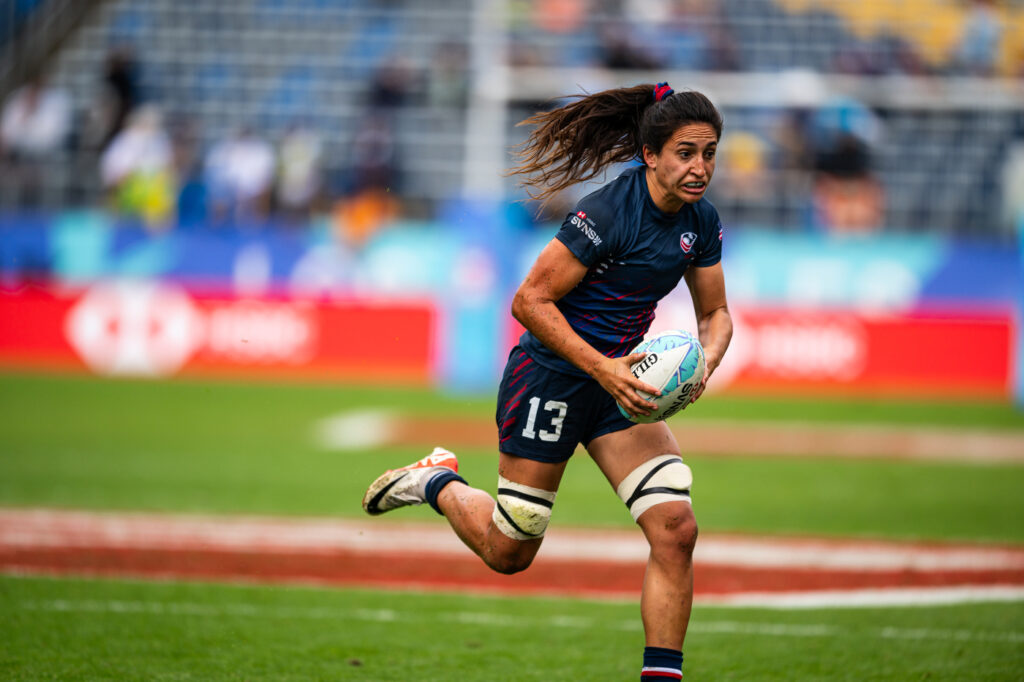release date
Sarah Levy is aiming for Olympic gold 10 years after falling in love with rugby at Northeastern University
“A year ago I never thought I'd be here,” said Levy, one of 13 Americans competing in the Paris Olympic women's rugby sevens tournament from July 28-30.
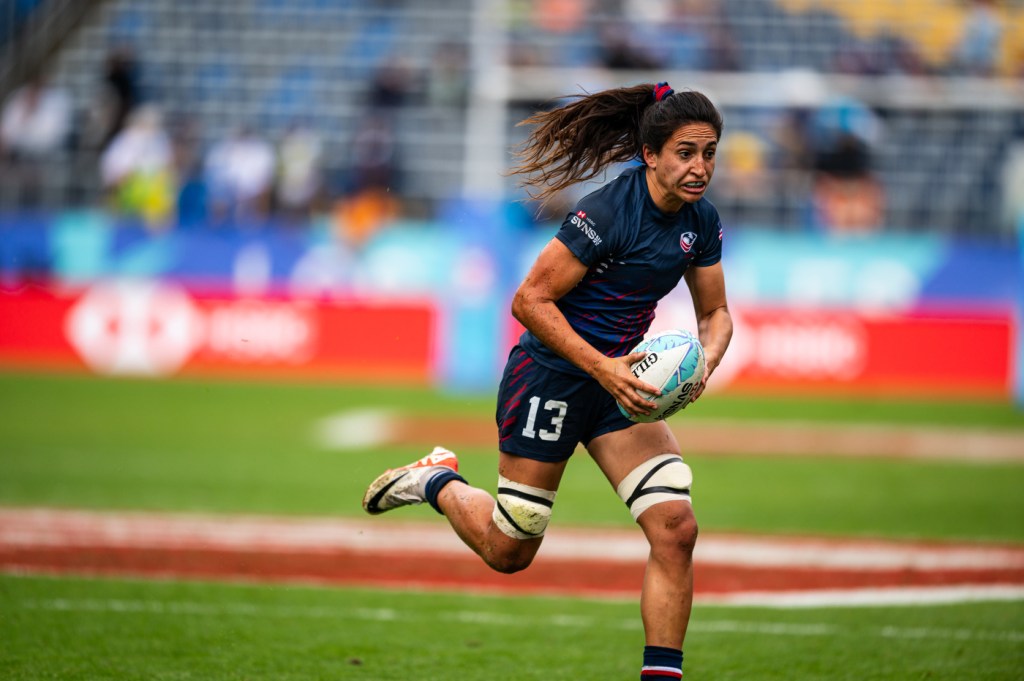
Sarah Levy had never played rugby before enrolling at Northeastern University 10 years ago. Now she's one of 13 Americans heading to Paris to compete in the women's rugby sevens at the Olympic Games.
“We're aiming for the gold medal,” Levy said, “and if not, hopefully we can get on the podium. We truly believe our team can achieve that.”
The women's rugby sevens Olympic tournament will begin with group play at the 69,000-seat Stade de France on July 28, two days after Levy and her teammates take part in the opening ceremonies in a parade of boats along the Seine. Levy's U.S. team is ranked fourth in the world in women's rugby sevens.
Levi's dream of competing in the Olympics has been with her ever since she started playing rugby. She enrolled at Northeastern University's Boston campus as a freshman from San Diego in 2014 and signed up for the women's rugby club at Fall Festival. She also participated in several club sports, including soccer, triathlon and mountain climbing.
“Rugby was the first club to have tryouts, and there was a girl on my floor who was also going, so it was easy to give in to peer pressure,” Levy says. “She said, 'You're going on Tuesday, right?' and got me going.”
By the end of the week, Levy had been invited to represent Northeastern University in a game, even though she didn't know many of the rules.
“Anyone could play. I think I scored two goals in my first game,” Levy said. “It was really fun. It was a great adrenaline rush and it was easy to make friends.”
Levy grew up in Southern California but was born in rugby-crazed South Africa, where her family included Louis Babloo, a lifelong opponent of apartheid who played for the South African national team, the Springboks, in the 1930s. Levy's father was also a rugby player, and her interest in the sport sparked a conversation between the two.
“And I learned the rules as I played,” she says. “I was small then and I was really scared of getting tackled, so I just had to run as fast as I could.”
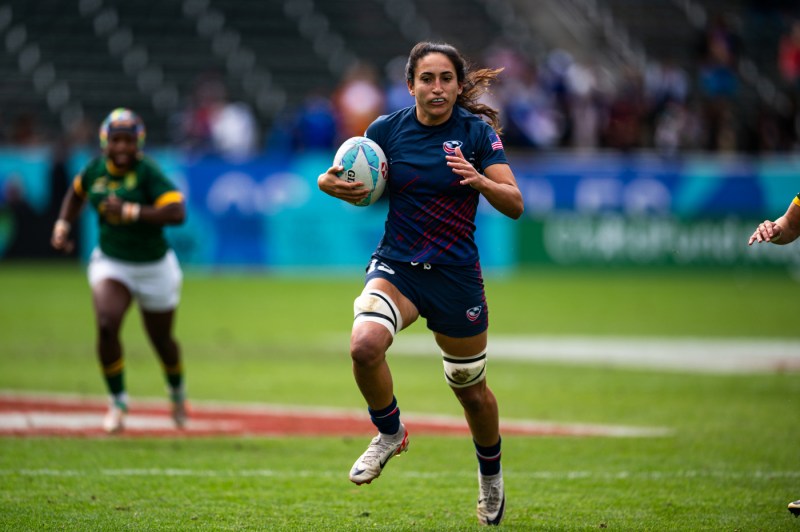
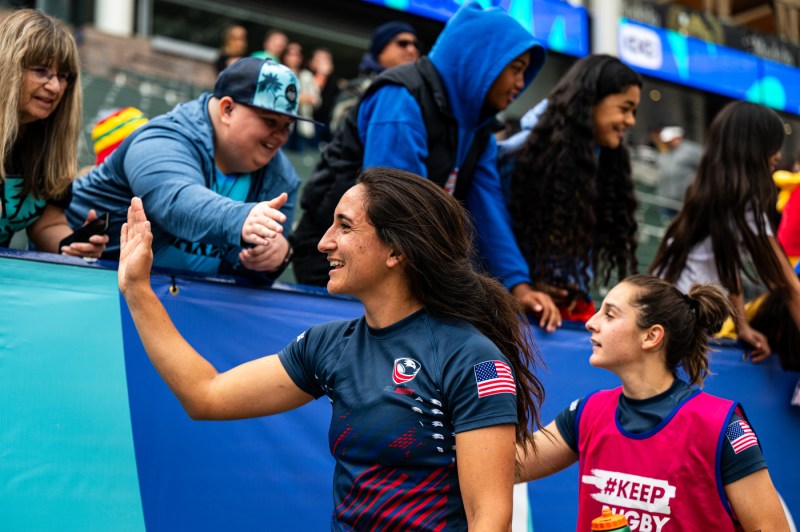
I took things one step at a time and there was a time when I considered quitting rugby as I tried to balance my love for the sport with my goal of one day becoming a physiotherapist.
It was only recently that making the Olympic team became a realistic goal.
“A year ago I never thought I'd be here,” Levy said. “I thought I was at the bottom of the league. [USA Rugby] He flourished in the training group and then he worked hard and turned it around, so I think he’s going to be the most surprising guy on this roster at the moment.”
“Give the ball to Sarah.”
Levi competed in soccer, track and field, cross country and golf in high school.
“I was always good at sports but I don't think I stood out in any sport,” says the 5-foot-8 Levy. “I found that in rugby athleticism was celebrated rather than looked down upon.”
She started playing rugby union, a traditional sport with 15 players on each team. Levi was drawn to the weight room, where she continued to train diligently.
“I spent a lot of time in the school gym, practicing and seeing it translate onto the field,” Levy said, “and I think that sparked my interest in physical therapy. [newfound] I learned about strength and how to get out of and tackle, it opened up a whole new side to the game and I really grew to love it.”
Levy's passion for rugby is what inspired him to become a physiotherapist: “Physiotherapy combines health care with exercise and movement so it seemed like exactly what I was looking for,” says Levy, who completed his health science degree in 2018.
Keith Cattanach, the Northeastern University women's rugby coach since 2012, remembers Levy as a quiet, humble star who still had to convince her teammates to believe she could turn corners, slip past defenders and run into the open field, even as she got stronger and faster.
“Once she got her confidence back, she picked up the momentum and everything just clicked,” said Cattanach, who changed his game plan to take advantage of Levi's speed during her junior year. “We responded to her ability to get into space. We basically just got the ball to Sarah and off she went.”
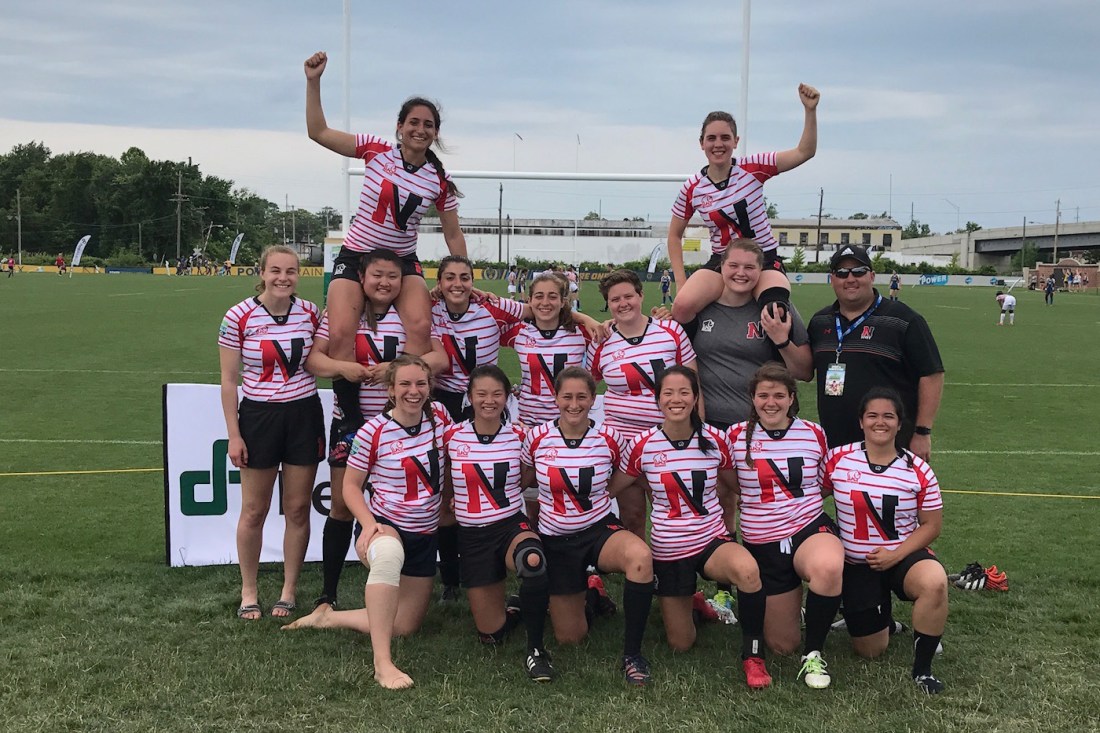
During Levy's four years at Northeastern, the club has transformed into a regional powerhouse, laying the foundation for the Huskies to win their first NCAA Women's Division I championship last year. The Cattanac program focuses on rugby union in the fall and rugby sevens in the spring, another trend Levy helped create.
As a freshman at Northeastern University, she played in one rugby sevens tournament, and that was enough to hook her. “It was very hard, very exhausting, but I loved it,” says Levy, who returned to her hometown of San Diego to play for her local sevens team.
“When I was at Northeastern, I was like, ‘OK, I’m going to find a way to play as many tournaments as I can,’” Levy recalled, “and that’s when they created the sevens program.”
With only seven players per team on a large field, rugby sevens is a fast-paced game that is usually played in open spaces. With seven-minute half-time, teams are forced to play at an exhausting pace.
A teammate convinced Levi to make her captain of the sevens program her sophomore year (“Why would anyone want to captain me? That's crazy”), and by the time she graduated from Northeastern University, she was focused on her ultimate goal: to represent the United States at the Olympics, no matter the odds.
An ironic opportunity
Levy played for New York Rugby Club and the Northeast Academy, a USA Rugby-sanctioned program, while also working at a physical therapy clinic in Connecticut for a year. By the end of 2018, she had been invited to play for USA Rugby's 15-a-side team.
But sevens was where she wanted to be, and a year later, she gave herself a six-month deadline: if she didn't hear from the USA Rugby Sevens program by the end of 2019, she would focus on grad school and her PT career.
That December, on the final day of her self-imposed deadline, she was invited to the USA Sevens camp, and she has continued training with the program ever since, while also earning her doctorate in physical therapy.
Levi's turning point was when she There was none Ironically, Lewy was selected to compete in the postponed 2021 Tokyo Olympics, a stopgap measure put in place at the time because the COVID-19 pandemic was disrupting plans to develop the next generation of athletes: He was one of six promising athletes invited to intensive sessions while the Olympic team trained for Tokyo.
“I've grown a lot here,” Levy says.
With most of her PhD completed, Levy has had the last year to dedicate to rugby: “It gave me the headspace to devote more time to fuelling, recovering, getting some sleep, watching films and really taking this year seriously,” she says.
As her role on the team expanded, her chances of being selected for Paris increased.
“I was stressed about it for so long, it didn't make me any less stressed,” she says of last month's official announcement. “I was like, 'OK, I made it, next thing…'”
“As I called my friends and family and saw how proud they were, it all became more real,” she said. It was then that she realized, “This is the biggest moment of my life.”
As a wing, Levi is expected to play in the open field while also using his length, jumping ability and explosiveness to create steals defensively, and he often comes off the bench as a finisher providing speed late in games.
The gold medalists will play six matches over three days in Paris, so utilizing every member of their roster will be crucial, and at least two of Levy's former Northeastern University teammates will be in town to support her.
“The team community at Northeastern is what inspired me to work hard at rugby,” Levy said. “You put your body on the line for each other and it really brings you closer. My teammates at Northeastern are some of my closest friends.”
The 28-year-old Levy learned Los Angeles will host the Summer Olympics in 2028 and hopes this will mark the start of his Olympic career.
“Sevens is a short game and if we can stay focused for 14 minutes, anyone can win,” Levy said. “I think we can beat any team. [in Paris]”… The idea is to have as much control over everything as possible.”
Ian Thomsen is a reporter for Northeastern Global News. Email him at i.thomsen@northeastern.edu. Follow him on X/Twitter. translation:.

